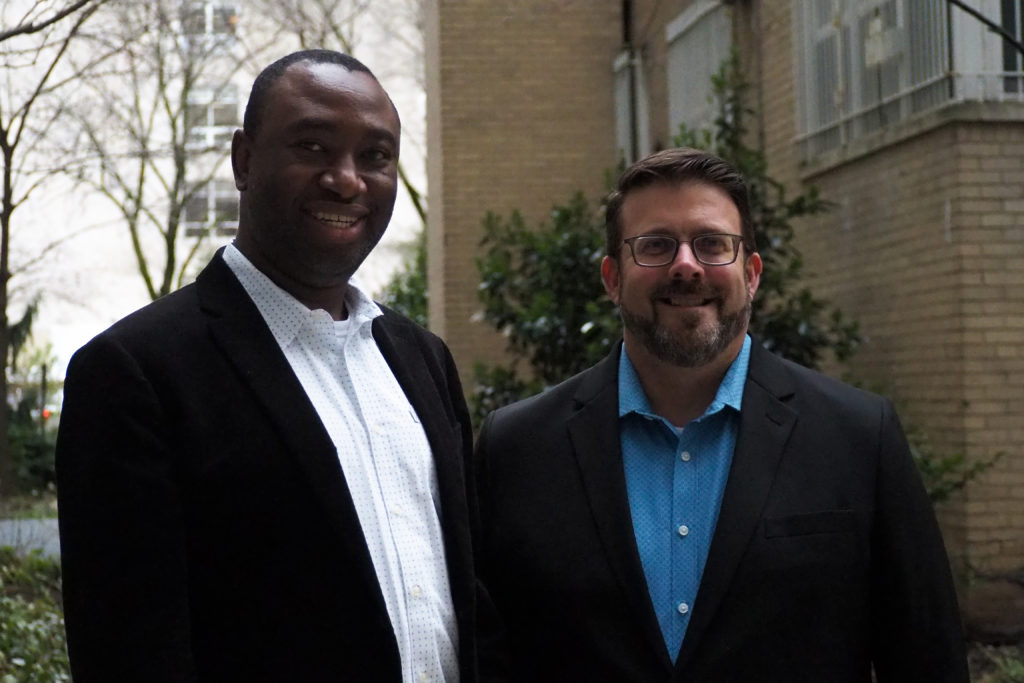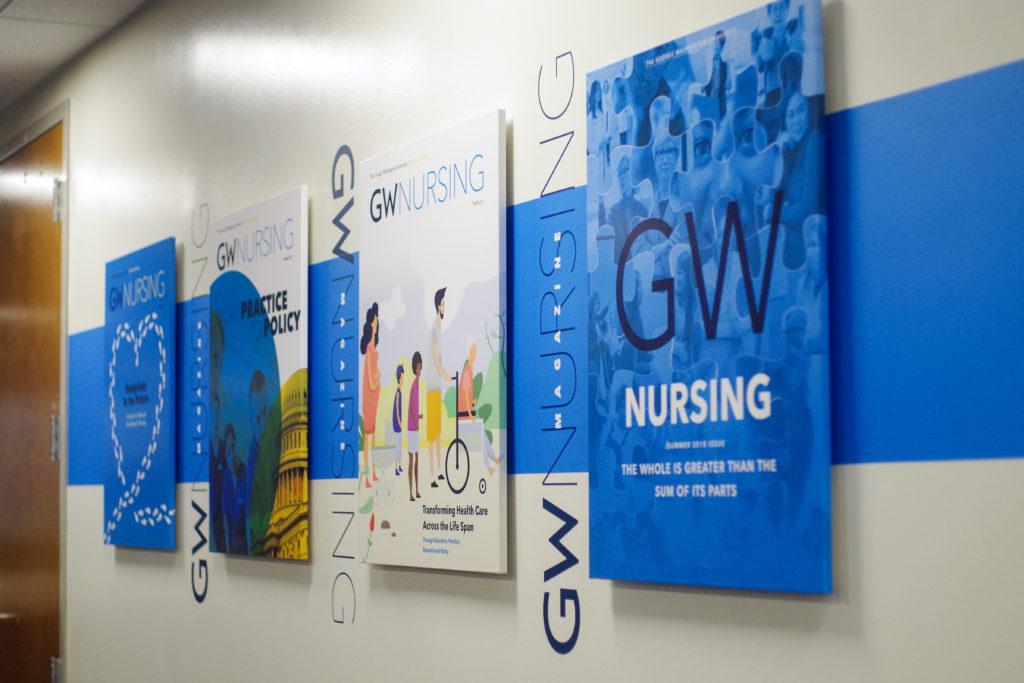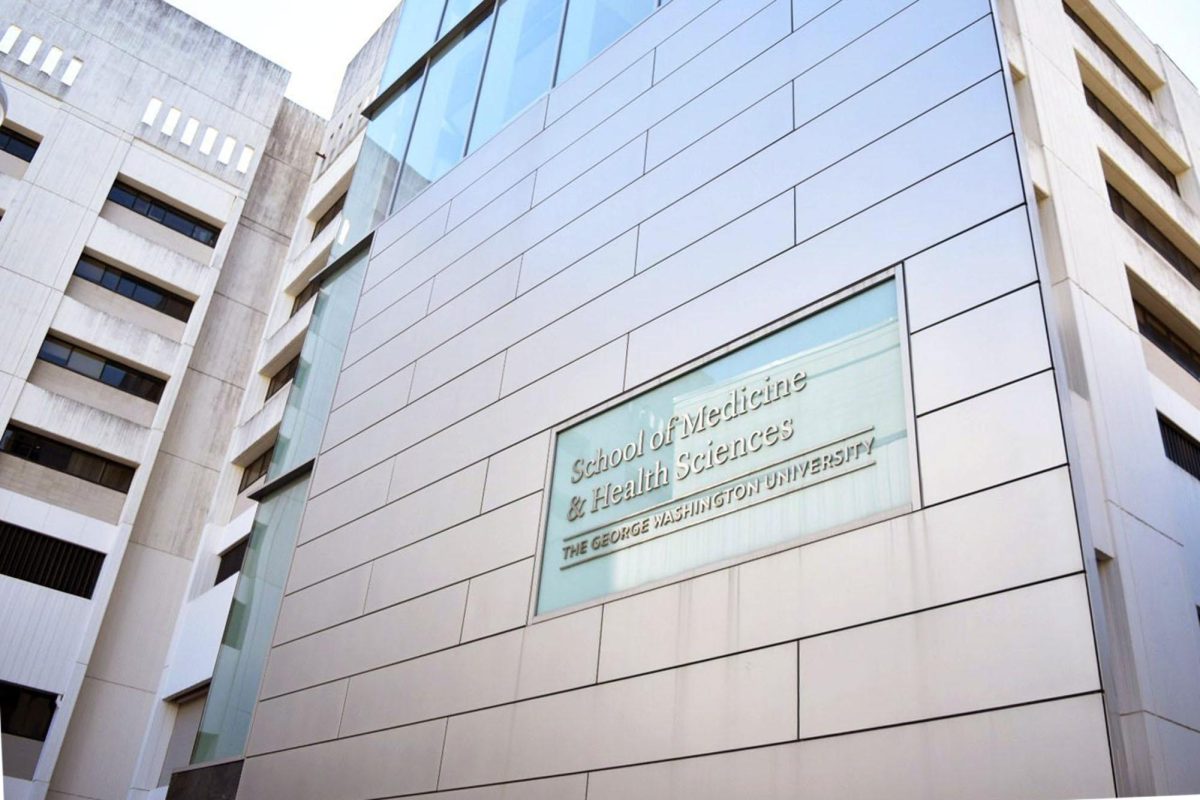A cross-discipline initiative in the School of Engineering and Applied Sciences will help undergraduate students secure research opportunities that align with their interests and skill level.
Jason Zara, the associate dean for undergraduate studies in SEAS, and Ekundayo Shittu, an associate professor of engineering management and systems engineering, will develop Research For All – a three-year, $2 million initiative designed to ease the process of finding research projects for students. They said GW and seven STEM-focused universities like Olin College of Engineering and Valparaiso University will design research training modules and an algorithm matching students to faculty members.
“The GW effort is focused on working with SEAS faculty to integrate real research problems into required courses in the engineering curricula to ensure that all SEAS undergraduates will be exposed to research in some way during their undergraduate studies,” Zara said in an email.
Zara said the initiative consists of three components that are called URCurious, URSkilled and URConnected. He said each component will improve students’ research skills to cultivate “entrepreneurial mindset” – a way of thinking where students further develop ideas from their previous mistakes in research – in their scientific disciplines.
He said URCurious will introduce more undergraduate students to research with course learning objectives in STEM classes while URSkilled will develop training modules for students to learn skills like formulating research questions and coding.
He said URConnected will create a matching tool for faculty and students that connects them with research opportunities relevant to their skills and interests.
Zara said the Keen Entrepreneurial Engineering Network – an organization of more than 50 universities that collaborate with undergraduate engineering students to incorporate scientific research in societal contexts – will split the grant between the eight colleges to implement the initiative in each institution.
He said other universities beyond those involved in the initiative could adopt similar ideas of the Research For All’s components to expand access and improve the quality of undergraduate research experience in their institutions.
“10 years from now, the hope is that the tools that we develop in this project will be used at many institutions to improve exposure to research to more students, better prepare students and faculty mentors to work together and better match students with the correct opportunities,” Zara said.
Shittu, the initiative’s co-principal investigator, said Research For All’s three components are based on the entrepreneurial mindset, which allows students to think outside of their comfort zones and lead them to academic discoveries that are capable of advancing societal changes.
He said the initiative aims to foster a risk-free environment for students’ curiosity, create tools like the training modules and expand access to research to non-traditional participants like underrepresented minorities and female students.
“I think this is a great initiative, and I think GW leading this initiative shows that GW is on the right track, in the right direction,” he said. “And what direction is that? We are taking the leadership role in examining and investigating what other institutions end up doing.”
Jeff Dusek, Olin’s chief investigator for the initiative and an assistant professor of mechanical engineering, said Olin and Valparaiso will conduct focus groups and surveys with undergraduate students for them to observe research projects of interest as officials develop the matching algorithm tool.
He said they will use training materials, certifications and other skill-building methods to create an online environment that pairs students with researchers based on their interests and what is needed within current research opportunities.
Dusek said he’s looking forward to developing some of the training modules to teach students how to build research skills and offering mentoring advice and questions to faculty and staff members to improve their students’ research experience.
He said the training modules will help faculty members who have multiple undergraduate students working on various projects ease the amount of time required to train students and produce efficient progress on research projects.
“I’m excited to learn from GW and to perhaps provide my experiences to help there,” he said. “I think there’s a lot of value in these highly integrated teams.”
Dan Maguire, an assistant professor of electrical and computer engineering at Valparaiso, said exposure to undergraduate research is crucial because it provides an additional perspective to an educational program as students can test what they’ve learned in their classes in real-life situations.
He said students who don’t have the opportunities to participate in research projects and connect with different faculty members is a “tragedy” because they miss out on experiences that could help prepare them for higher skill-leveled settings like graduate school.
He said the eight schools will aim to create a space where undergraduate research opportunities are available to everyone and not just a select few who happen to know or directly talk to faculty members.
“There’s so many institutions that are contributing both smaller ideas and huge conceptual ideas, and they all came together into Research For All,” he said.








